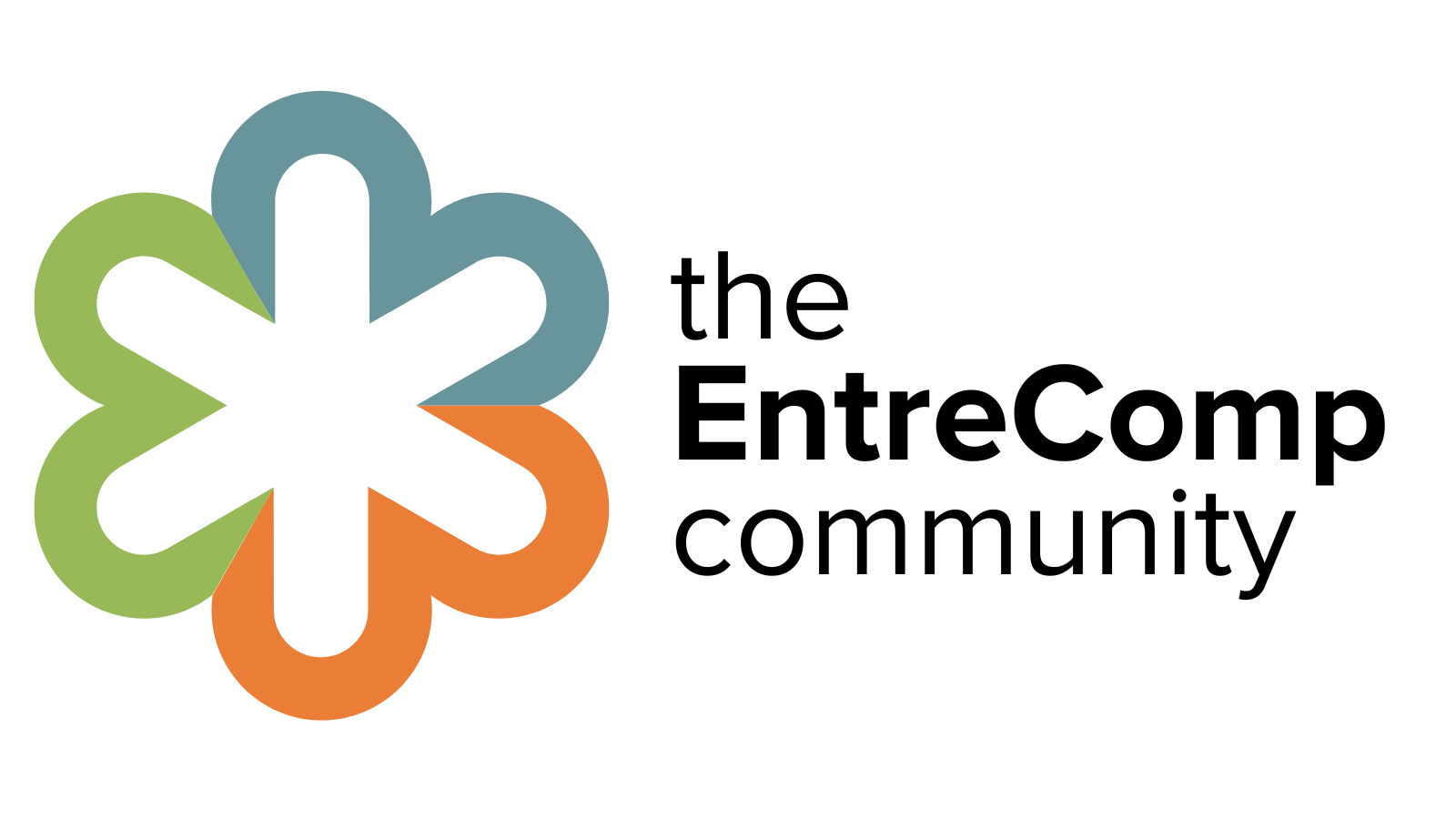
EntreCompEdu Teacher Pioneer
This training programme was designed to develop the EntreCompEdu teacher professional competences to support teachers to deliver entrepreneurial education and EntreComp competences in their own teaching. For more information - please see www.entrecompedu.eu
Teachers and education professionals who completed this badge went through a six week course of teacher professional development. They engaged in face to face training sessions, completed a series of online tasks and reflected back to online facilitators on their learning and its relevance to their own teaching.
They developed their professional expertise in the following EntreCompEdu competences:
COMPETENCE AREA 1. PROFESSIONAL KNOWLEDGE AND UNDERSTANDING OF ENTREPRENEURIAL EDUCATION
1.1 Knowing entrepreneurial education - Continually developing my knowledge of entrepreneurial education, including the EntreComp framework. 1.2 Valuing entrepreneurial education - Understanding the relevance and potential of entrepreneurial education in my teaching and students’ learning. 1.3 Understanding how learners develop entrepreneurial competences - Identifying my students’ needs, interests and starting-points and using this knowledge to inform how I approach entrepreneurial education.
COMPETENCE AREA 2. PLANNING OF ENTREPRENEURIAL EDUCATION
2.1 Setting entrepreneurial learning goals that are ethical and sustainable - Ensuring that my planning has a strong social and moral purpose in seeking to add value to students’ lives and the environment. 2.2 Making connections - Exploring appropriate connections within and beyond my subject so that entrepreneurial learning is fully integrated in my planning. 2.3 Creating an empowering entrepreneurial learning environment - Planning and monitoring the use of space, time, classroom layout and appropriate resources (including technologies), to encourage and support entrepreneurial learning opportunities.
COMPETENCE AREA 3. TEACHING AND TRAINING FOR ENTREPRENEURIAL EDUCATION
3.1 Instructing to enthuse and engage - Interacting with students through entrepreneurial teaching strategies so that they are keen to learn and sustain their efforts. 3.2 Creating value for others - Empowering students to regularly ask questions, consider alternative solutions, follow their own enquiries and create value for others through their learning 3.3 Teaching through real-world contexts - Ensuring that my teaching of entrepreneurial competences occurs in relevant, engaging and increasingly challenging contexts. 3.4 Encouraging self-awareness and self-confidence to support learning - Building self-awareness and self-confidence so that students take responsibility, handle setbacks and resolve difficulties in mature ways to achieve valuable outcomes. 3.5 Promoting productive working with others - Organising regular opportunities for students to work with others, within and beyond the school, in purposeful ways.
COMPETENCE AREA 4. ASSESSMENT OF ENTREPRENEURIAL EDUCATION
4.1 Checking and reporting on progress - Monitoring and reporting on what students know, understand and can do in their entrepreneurial learning. 4.2 Sharing feedback - Ensuring that students know what and how they need to improve their entrepreneurial learning and are becoming increasingly involved and engaged in assessing their own progress. 4.3 Recognising progress and achievement - Providing opportunities for students to share the evidence of their entrepreneurial learning journey through two-way communication with a range of audiences in and beyond the school.
COMPETENCE AREA 5. PROFESSIONAL LEARNING FOR ENTREPRENEURIAL EDUCATION
5.1 Evaluating impact - Reflecting critically on my teaching and other factors that influence students’ entrepreneurial learning. 5.2 Researching practice - Exploring what works well and why in entrepreneurial education across different contexts, drawing on research and other evidence to inform my practice. 5.3 Building and sustaining networks - Working with other teachers and external stakeholders to sharpen my practice and enrich students’ entrepreneurial learning experiences.
